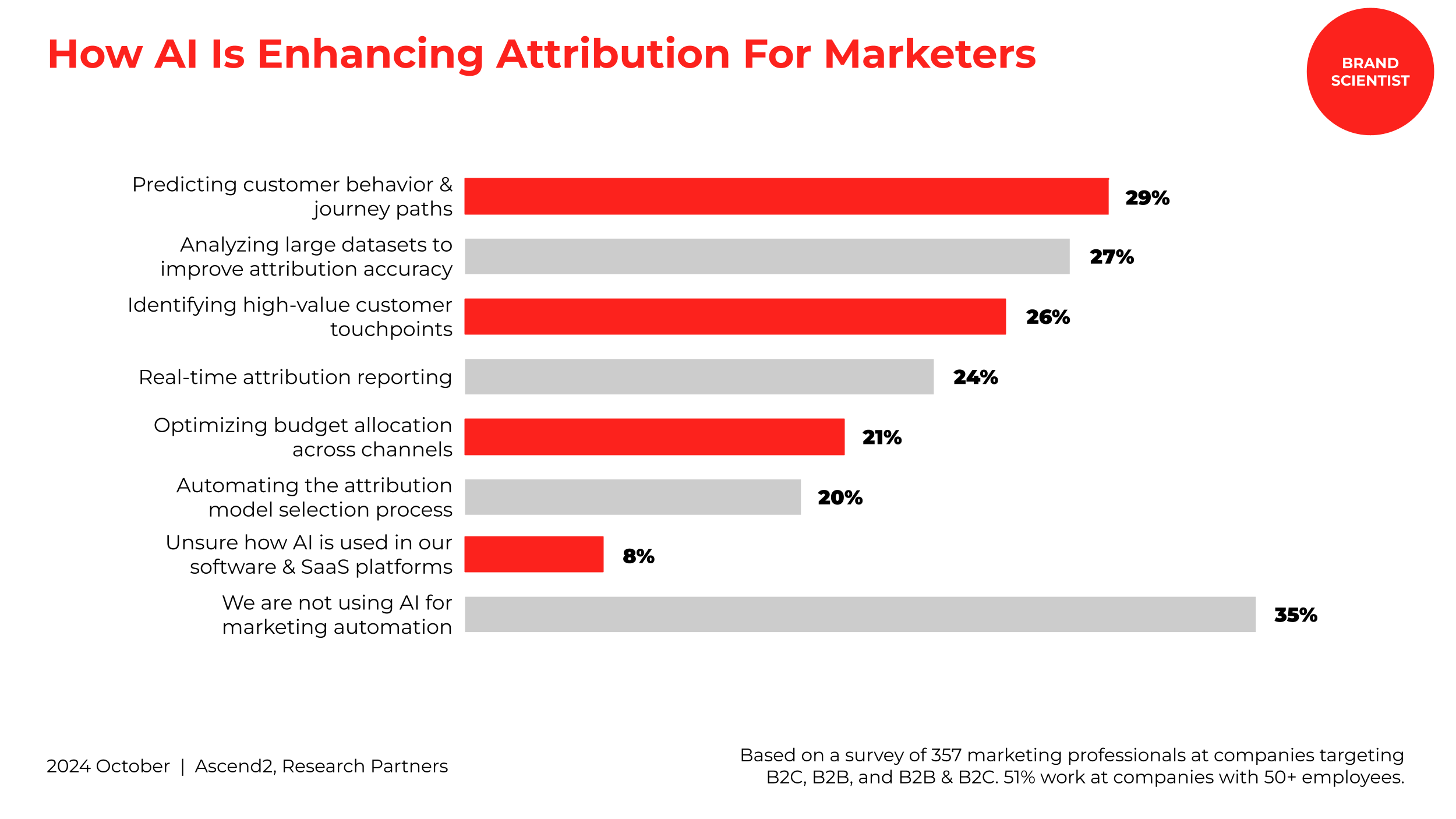How Is AI Enhancing Attribution For Marketers?
Attribution has become an increasingly significant challenge for marketers, who are now turning to artificial intelligence (AI) for solutions. According to recent research from Ascend2 and its research partners, AI for forecasting has emerged as the fastest-growing desired feature in marketing attribution platforms. The importance of AI forecasting capabilities has seen a dramatic increase, with 29% of respondents now considering it crucial, up from just 13% last year and 12% the year before.
Nearly two-thirds of surveyed professionals are already utilizing AI for marketing attribution purposes. The primary application is predicting customer behavior and journey paths, cited by 29% of respondents. This trend aligns with other recent findings showing that approximately 60% of CMOs are leveraging AI and machine learning to forecast changes in customer behaviors. B2C marketers, in particular, have shown strong interest in AI-driven predictive capabilities.
AI's role in marketing attribution extends beyond behavior prediction. Organizations are employing the technology to analyze large datasets for improved attribution accuracy (27%), identify valuable customer touchpoints (26%), and enable real-time attribution reporting (24%). The impact has been notable, with 38% of AI users strongly agreeing that it has significantly enhanced their attribution efforts' accuracy and effectiveness, while an additional 48% somewhat agree with this assessment.
These findings are based on a September survey encompassing 357 marketing professionals across various sectors, including B2C (48%), B2B (20%), and combined B2B/B2C (32%) companies. The study primarily represents mid-to-large organizations, with 51% of respondents working at companies employing 50 or more people.
Key Actionable Takeaways:
Implement AI-Powered Forecasting Tools: With AI forecasting becoming increasingly critical (29% adoption rate), invest in platforms that offer predictive analytics capabilities for marketing attribution.
Focus on Customer Journey Mapping: Since 29% of companies use AI to predict customer behavior paths, develop comprehensive journey mapping tools enhanced by AI insights.
Upgrade Data Analysis Infrastructure: With 27% using AI for large dataset analysis, ensure your tech stack can handle and process large volumes of attribution data efficiently.
Optimize High-Value Touchpoints: Leverage AI insights (used by 26% of companies) to identify and enhance the most impactful customer interaction points.
Develop Real-Time Reporting Systems: Following the 24% of companies using AI for real-time attribution, implement systems that provide immediate insights for quick decision-making.
Create Cross-Channel Attribution Models: Build comprehensive attribution models that account for both B2B and B2C channels, reflecting the mixed business environment (32% serve both markets).
Establish Attribution Accuracy Metrics: Given that 86% of users report improved attribution accuracy with AI, develop clear KPIs to measure attribution effectiveness.
Scale Attribution Solutions: Design scalable attribution systems that can grow with your business, particularly important for the 51% of companies with 50+ employees.
Integrate Predictive Customer Behavior Tools: Align with the 60% of CMOs using AI for customer behavior prediction by implementing similar predictive tools.
Build Team Capabilities: Invest in training marketing teams to effectively use AI-powered attribution tools and interpret the resulting data for strategic decision-making.
These action items are particularly relevant for organizations looking to stay competitive in both B2C (48%) and B2B (20%) markets, as indicated by the survey demographics.
